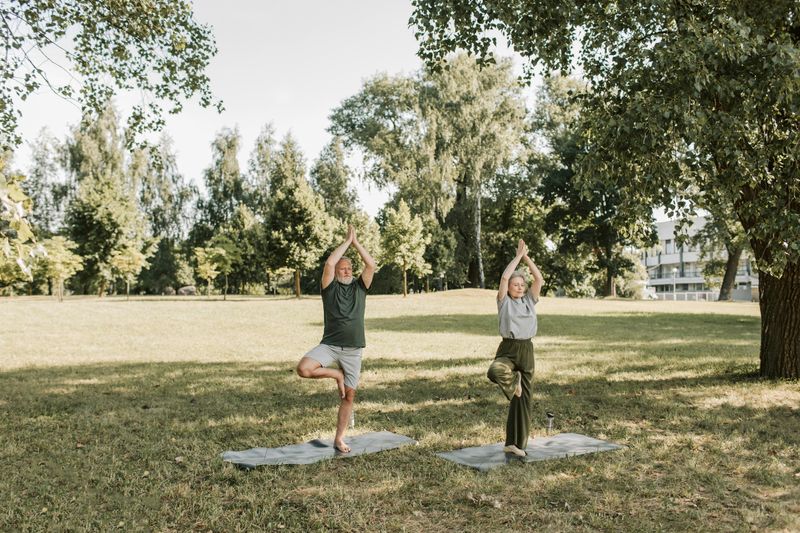Why You Should Start Mindfulness Meditation: 10 Key Reasons

Mindfulness meditation isn’t just for monks or yoga teachers anymore. This simple practice of paying attention to the present moment has become popular with everyone from busy parents to top athletes. Learning to focus your awareness without judgment can transform how you handle life’s challenges. Ready to discover how a few minutes of mindfulness each day might change your life?
1. Stress Melts Away

Your body’s stress response can shift into low gear with regular meditation. When you sit quietly and focus on your breath, your heart rate slows and stress hormones like cortisol decrease. Many people notice this calming effect right away, even after just one session.
Over time, this practice creates lasting changes in how your brain processes stress. The beauty of this stress-relief technique is that you can use it anywhere—during a tough meeting, in traffic, or before bed—making it a practical tool for modern life.
2. Sharper Mental Focus

Attention span problems? Mindfulness works like a mental gym for your concentration muscles. Regular practitioners report fewer distracting thoughts and greater ability to stay on task. Research from Harvard shows that meditation actually changes brain structure in areas responsible for attention.
Students who meditate before tests often perform better because they can ignore distractions. The practice teaches your mind to notice when it’s wandering and gently bring focus back—a skill that transfers to everything from work projects to conversations with loved ones.
3. Emotional Balance Restored

Feeling like an emotional rollercoaster lately? Mindfulness creates space between your emotions and reactions. By observing feelings without immediate judgment, you gain valuable perspective. The practice helps you recognize that emotions are temporary experiences, not permanent states.
This simple shift prevents small irritations from spiraling into major upsets. Many practitioners discover they can acknowledge difficult feelings without being overwhelmed by them. This emotional resilience becomes particularly valuable during challenging life transitions or when facing unexpected setbacks.
4. Better Sleep Quality

Tossing and turning at night? Mindfulness meditation can help quiet the racing thoughts that keep you awake. A study in JAMA Internal Medicine found that meditation improved sleep quality more effectively than sleep education alone.
The practice teaches you to release worries about yesterday and tomorrow. Many practitioners use body scan meditations before bed, systematically relaxing from head to toe. Sleep experts now recommend mindfulness as a first approach for insomnia, before turning to medication.
Even better, unlike sleeping pills, meditation has no side effects and actually improves your daytime functioning too.
5. Physical Pain Reduction

Surprisingly, mindfulness can change how your brain processes pain signals. Rather than fighting against discomfort, you learn to observe sensations with curiosity instead of fear. Studies show meditation activates parts of the brain that modulate pain perception.
Many people with chronic conditions report needing less medication after developing a regular practice.
The technique works for everyday aches too. Next time you have a headache, try sitting quietly for five minutes, breathing deeply and observing the sensation without judgment—many find the intensity naturally decreases.
6. Kinder Self-Talk Patterns

That critical voice in your head can become gentler through mindfulness practice. By observing your thoughts without attachment, you start recognizing negative self-talk patterns. Many people discover they speak to themselves more harshly than they would to anyone else.
Meditation creates awareness of this habit and naturally fosters more compassionate internal dialogue. Over time, practitioners report replacing judgmental thoughts like “I’m so stupid” with kinder observations like “That mistake taught me something important.”
This shift creates profound improvements in self-esteem and overall happiness.
7. Stronger Immune Function

Your body’s defense system gets a boost from regular mindfulness practice. Research published in the Annals of the New York Academy of Sciences shows meditation can increase activity of natural killer cells that help fight viruses and cancer.
The connection works through stress reduction—when your body isn’t constantly in fight-or-flight mode, it can devote more resources to immune function. Regular practitioners report fewer colds and faster recovery from illness.
Even short daily sessions seem to provide benefits. Just 10 minutes each morning might help keep your immune system functioning at its best throughout the day.
8. Deeper Relationship Connections

Mindfulness transforms how you interact with others. The practice develops your ability to truly listen without planning your response or getting lost in judgment. Partners of regular meditators often notice improved communication.
When you’re fully present during conversations, people feel genuinely heard and valued. This creates trust and emotional intimacy. The practice also helps you respond thoughtfully rather than react impulsively during conflicts.
Many couples report fewer arguments and quicker resolution of disagreements when at least one partner practices mindfulness regularly—making it one of the simplest relationship-strengthening tools available.
9. Enhanced Creativity Flows

Creative blocks dissolve when you practice mindfulness regularly. By quieting your inner critic and creating mental space, fresh ideas have room to emerge. Many artists, writers, and musicians use meditation before creative sessions.
The practice helps access the brain’s default mode network—where unexpected connections and original thoughts often arise. Even if you don’t consider yourself naturally creative, mindfulness can help with problem-solving and innovative thinking at work or home.
The simple act of stepping back from mental chatter often reveals solutions that weren’t visible when your mind was cluttered.
10. Aging Gracefully

Meditation might actually slow cellular aging. Research from Nobel Prize-winning scientist Elizabeth Blackburn found that mindfulness practitioners have longer telomeres—protective caps on chromosomes associated with longevity.
Beyond physical changes, regular meditation helps maintain cognitive function as you age. Studies show it may protect against memory decline and keep your mind sharp. The practice also fosters acceptance of life’s natural changes.
Many older meditators report greater peace with aging and less anxiety about the future—making mindfulness a powerful tool for maintaining both mental and physical wellbeing throughout life’s later chapters.

Comments
Loading…